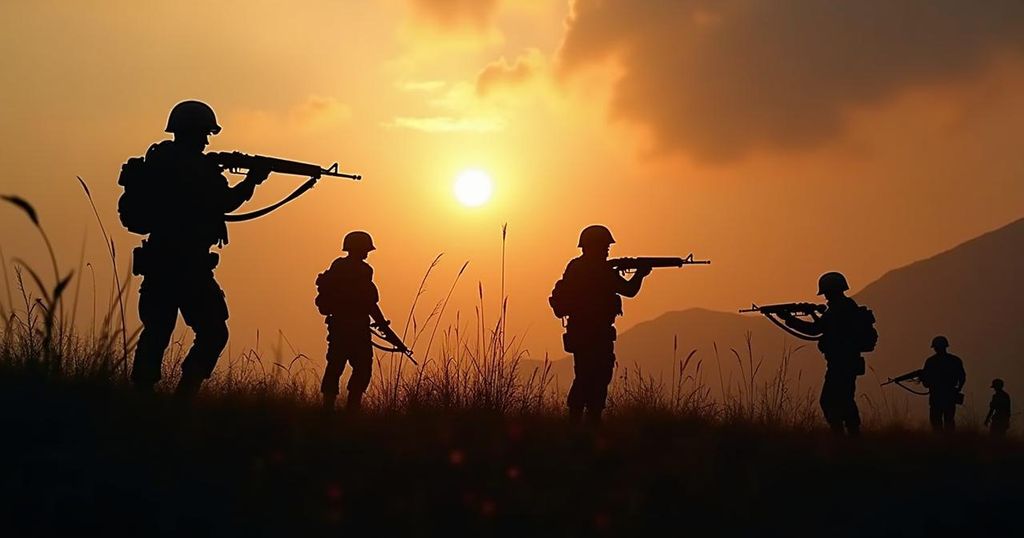Recent violence at the Guatemalan border resulted in the deaths of six migrants, including nationals from Egypt, Peru, and El Salvador, when Mexican army troops opened fire on their vehicle. The incident has drawn international condemnation and demands for accountability, highlighting the complicated intersection of migration, human rights, and national security in Mexico.
In a tragic incident near the Guatemalan border, Mexican army troops opened fire on a truck transporting migrants, resulting in the deaths of six individuals hailing from Egypt, Peru, and El Salvador. This event, described by President Claudia Sheinbaum as “deplorable,” also left ten other migrants wounded. While the exact details surrounding the number of casualties from each nation remain unclear, Peru’s Foreign Ministry has confirmed the death of one of its citizens and has called for an urgent investigation into the matter. The shooting occurred on Tuesday in the vicinity of Huixtla, Chiapas, where the Defense Department reported that soldiers fired upon a convoy of trucks after claiming to have heard gunfire. The first vehicle of the convoy allegedly sped away, prompting the soldiers to direct their fire at a subsequent truck carrying migrants from various countries, including Nepal, Cuba, India, and Pakistan. Upon inspection, four migrants were found lifeless, and twelve others were injured; two of those later succumbed to their injuries. President Sheinbaum announced that the two soldiers involved were under investigation by civilian prosecutors, although they have not yet faced charges. The shootings have reignited concerns regarding the militarization of Mexico’s immigration policy and the complexities of law enforcement at the southern border, an area notorious for drug cartel activity and migrant smuggling. Furthermore, the incident marks the most lethal interaction between Mexican authorities and migrants since a 2021 incident in Tamaulipas, where seventeen migrants were killed by police. Critics, including human rights advocates and the Mexican Council of Bishops, have condemned the use of lethal force, attributing these incidents to the increasing militaristic approach to immigration control. As investigations continue, the implications of this occurrence for President Sheinbaum’s administration may prove significant, especially given its possible connections to the broader context of armed forces’ involvement in civilian matters across the country.
The shooting of migrants by Mexican army personnel highlights ongoing tensions surrounding immigration in Mexico, particularly at its southern border with Guatemala. In recent years, an increase in armed forces’ presence aimed at curbing irregular migration has raised concerns regarding human rights violations and the militarization of immigration policy. The deaths in this incident are reminiscent of prior events where Mexican authorities have been involved in violent confrontations with migrants, stirring public outcry and calls for accountability. The context of organized crime, specifically drug cartels operating in the region, complicates the situation and raises questions about the treatment of vulnerable populations seeking refuge or assistance. President Claudia Sheinbaum’s administration, inheriting these longstanding issues, is now faced with the challenge of responding effectively to both human rights concerns and national security. Foreign relations have also been impacted, as countries like Peru demand answers in light of the tragic loss of their nationals, revealing cracks in diplomatic ties following historical tensions. President Sheinbaum’s decision to hold the soldiers accountable may be viewed as a first step towards transparency and reform but requires a comprehensive approach to prevent future tragedies.
In conclusion, the fatal shooting of six migrants by Mexican army troops raises critical questions about the treatment of migrants, the militarization of immigration policy, and accountability for law enforcement conduct. As investigations proceed, the international community will undoubtedly scrutinize Mexico’s approach to handling migration-related incidents, particularly regarding human rights protections. This tragedy serves as a poignant reminder of the challenges faced by migrants and the complexities of immigration policy in a context rife with organized crime and historical tensions.
Original Source: abcnews.go.com






